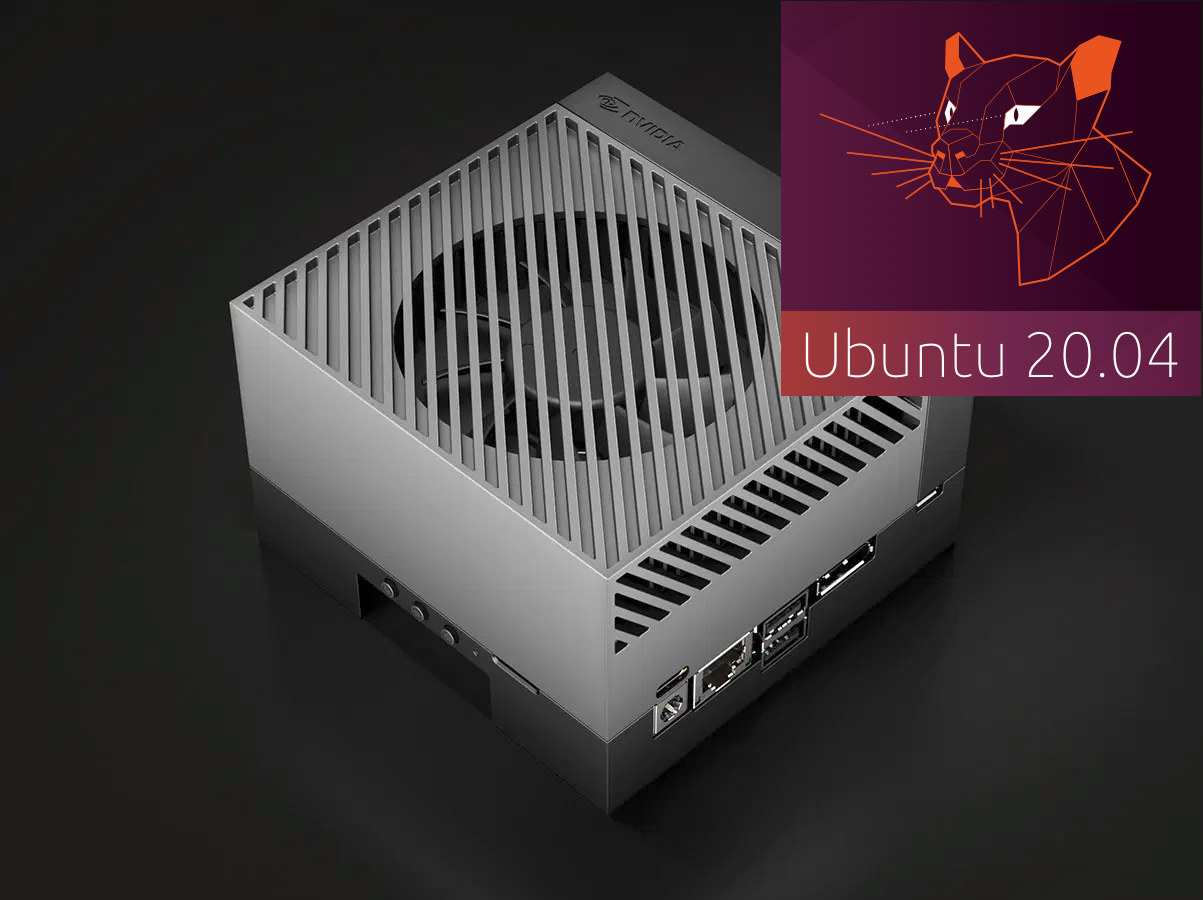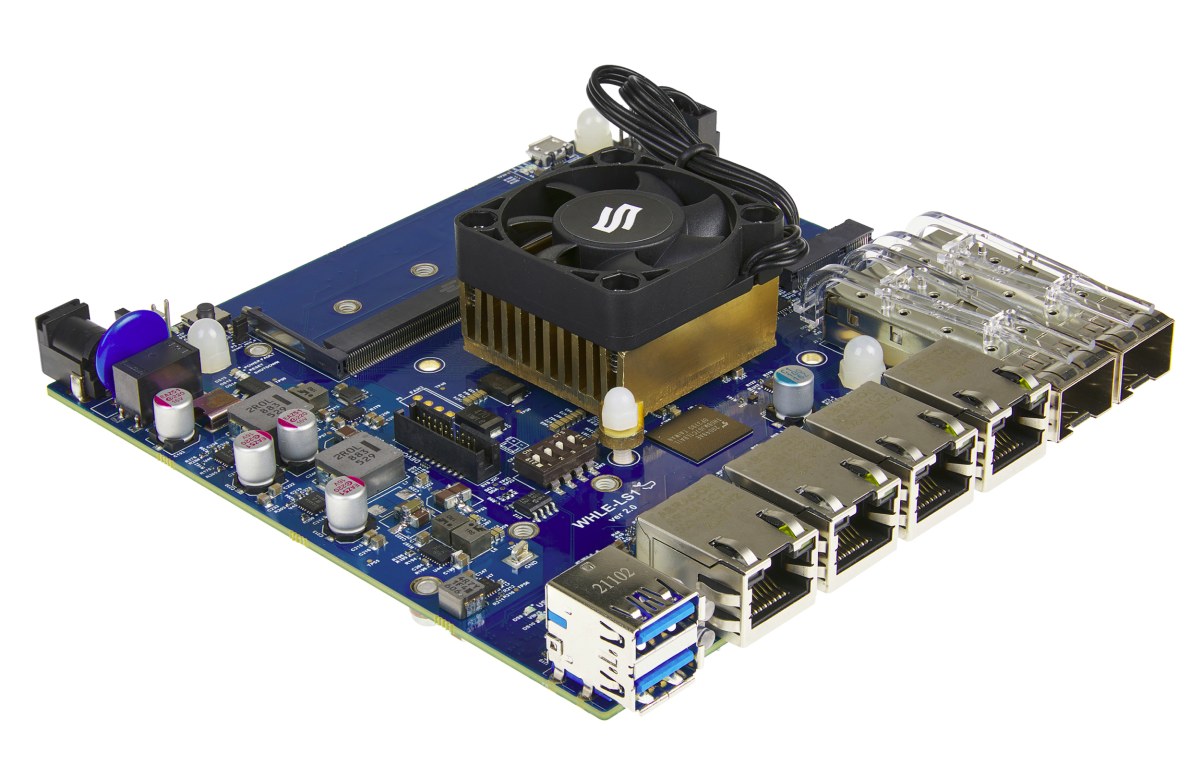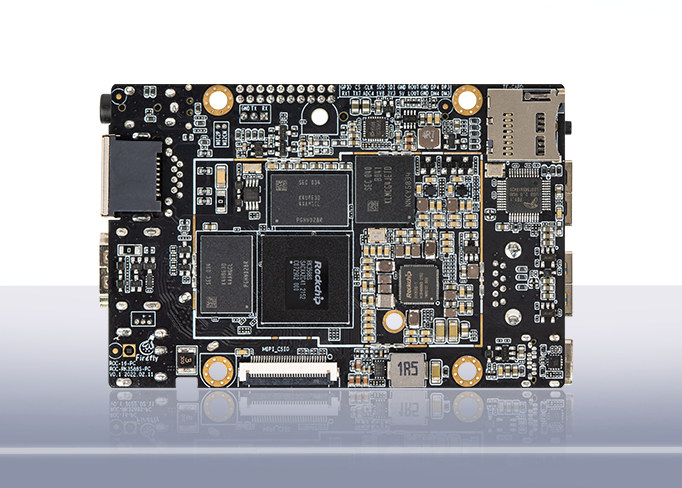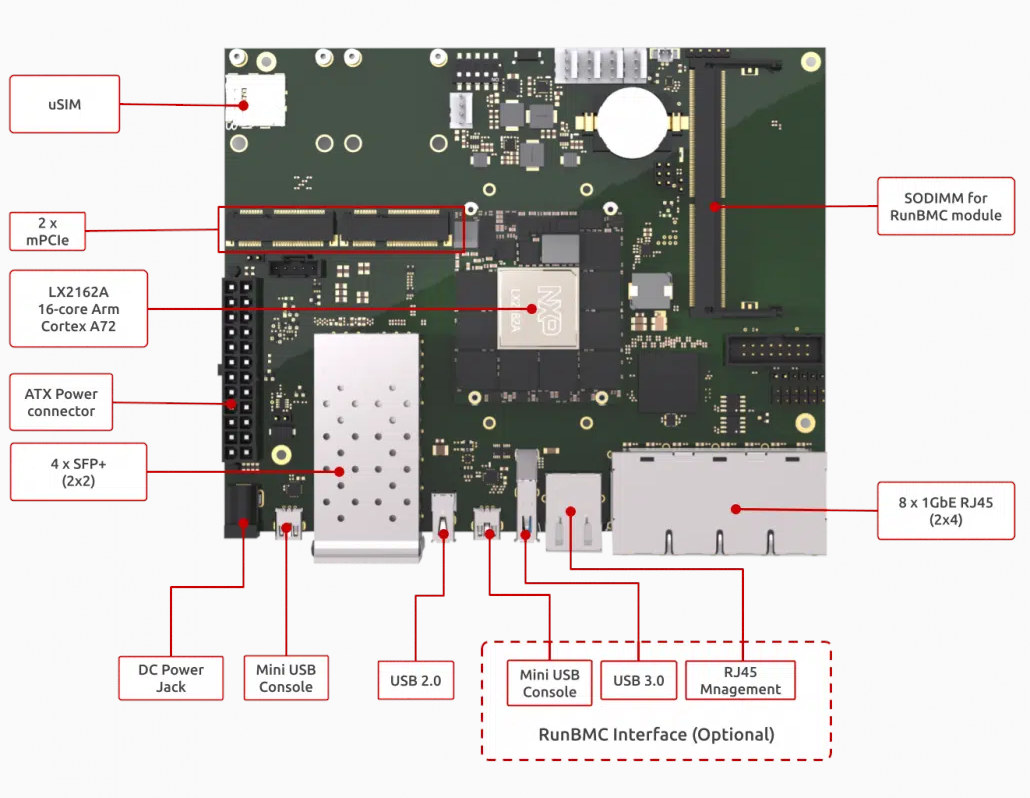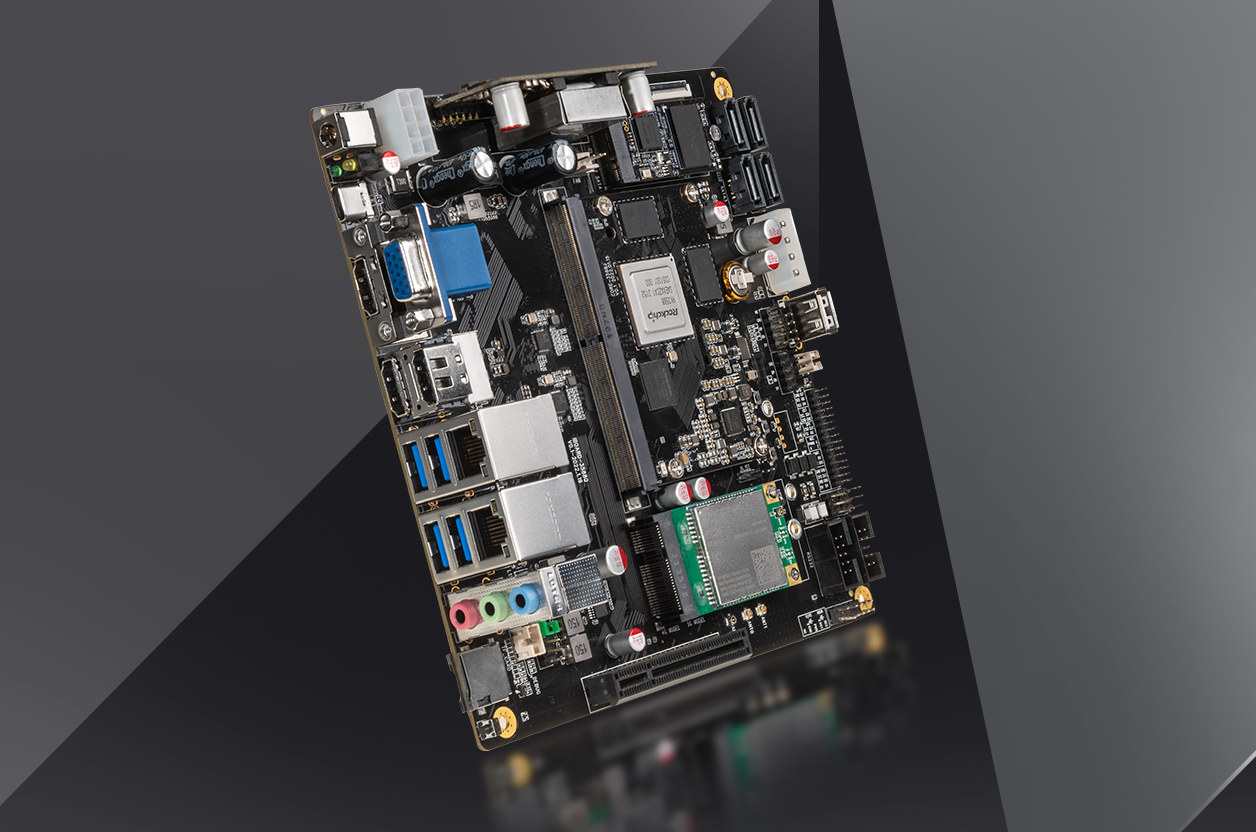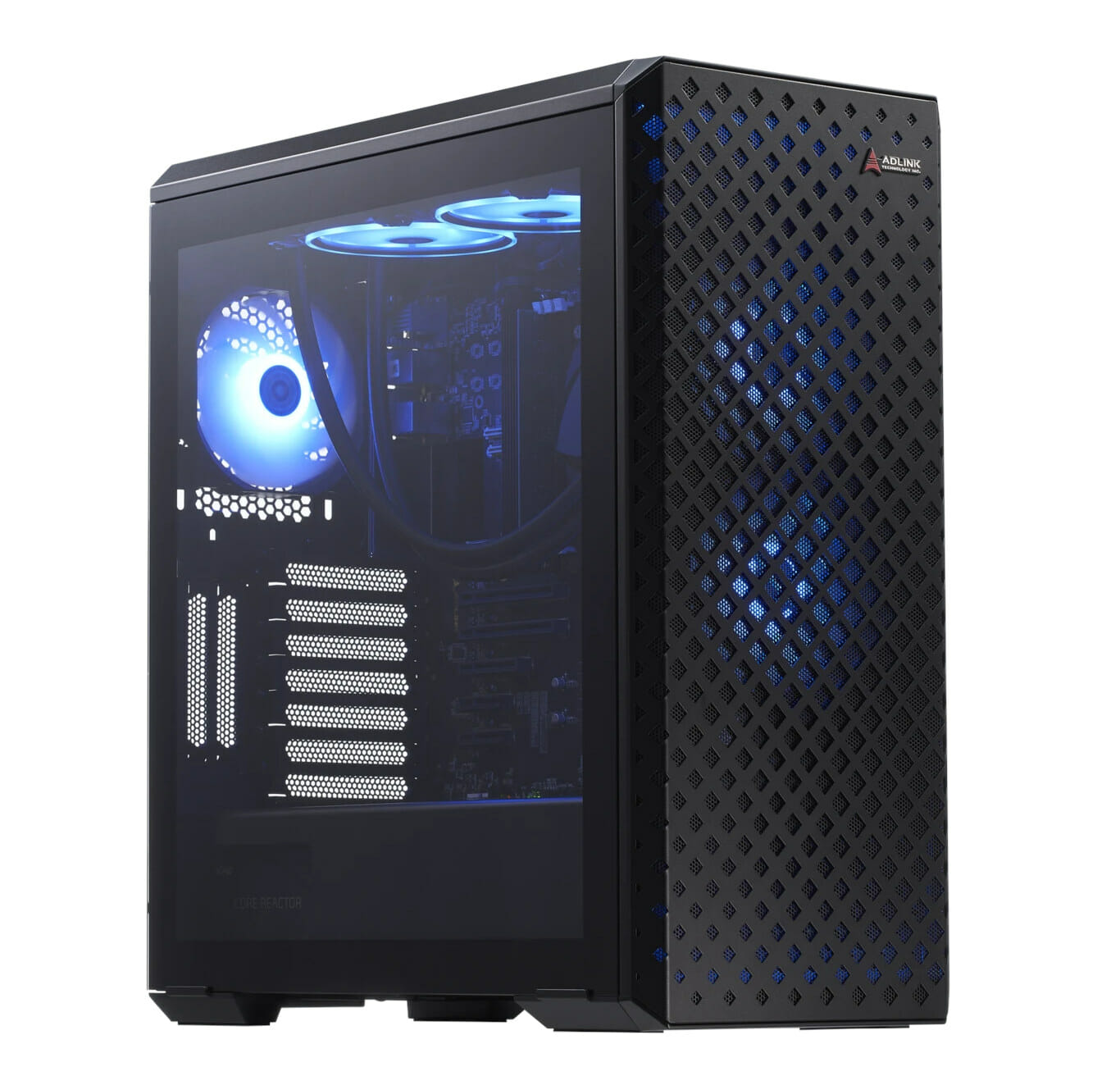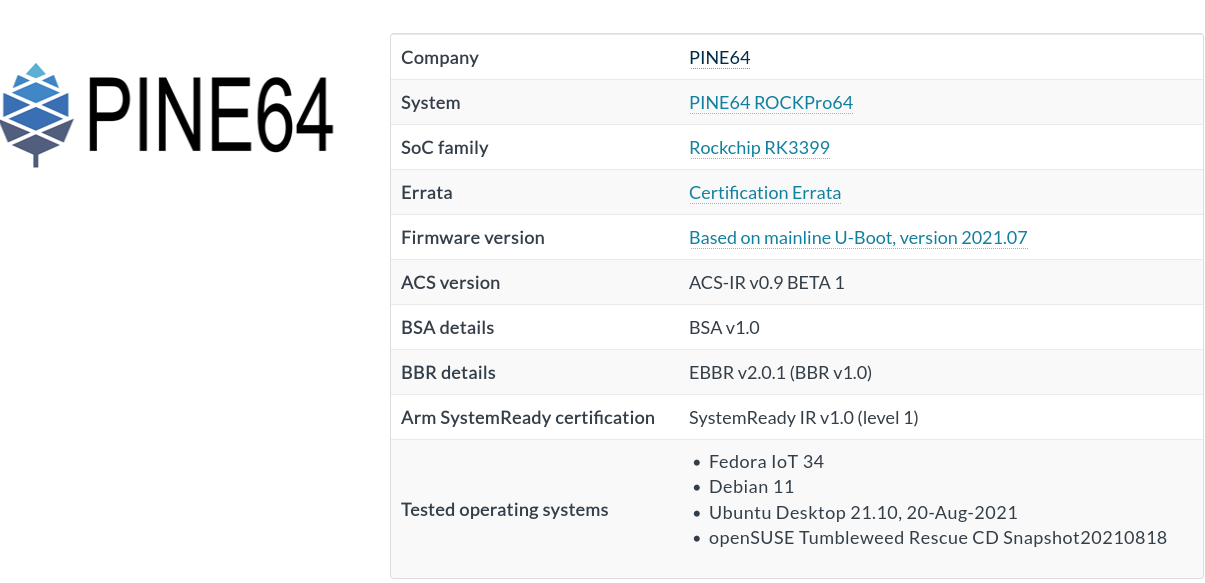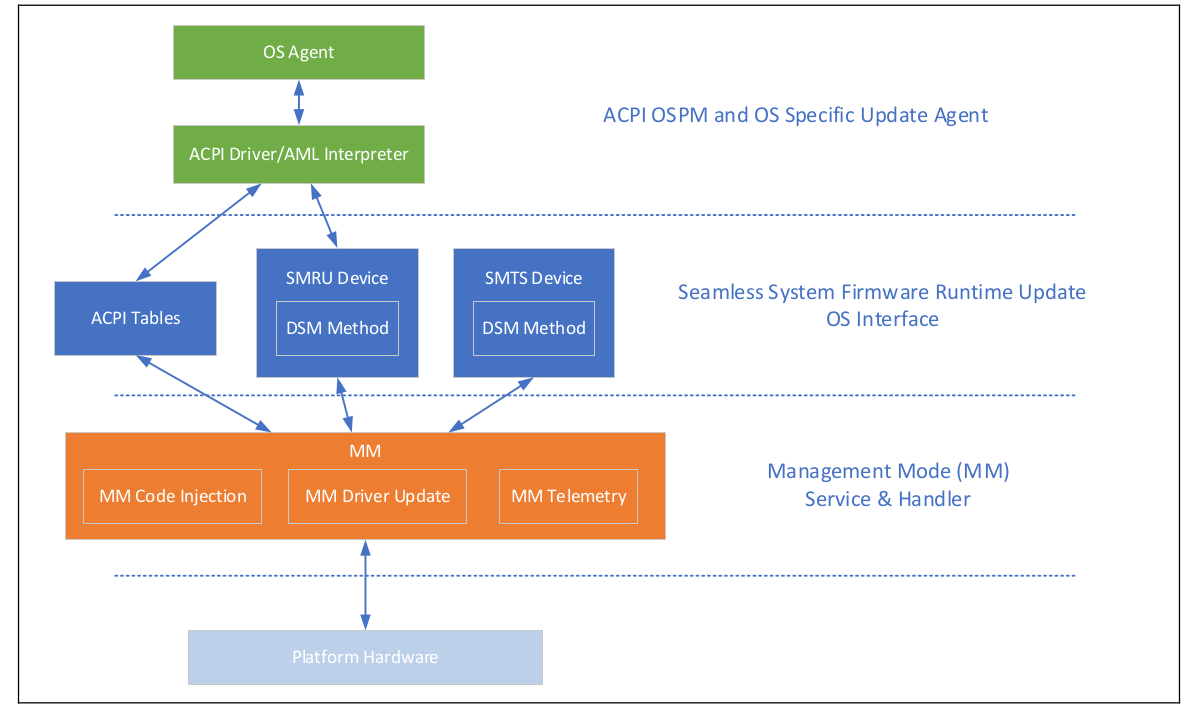The NVIDIA Jetpack 5.0.2 production release is out with Ubuntu 20.04, the Jetson Linux 35.1 BSP 1 with Linux Kernel 5.10, an UEFI-based bootloader, support for Jetson AGX Orin module and developer kit, as new as updated packages such as CUDA 11.4, TensorRT 8.4.1, cuDNN 8.4.1. NVIDIA Jetson modules and developer kits are nice little pieces of hardware for AI workloads, but the associated NVIDIA Jetpack SDK was based on the older Ubuntu 18.04 which was not suitable for some projects. But the good news is that Ubuntu 20.04 was being worked on and initially available through the Jetpack 5.0.0/5.0.1 developer previews, and NVIDIA Jetpack 5.0.2 SDK is the first production release with support for Ubuntu 20.04. Besides the upgrade to Ubuntu 20.04, the Jetpack 5.0.2 SDK also adds support for both the Jetson AGX Orin Developer Kit and the newly-available Jetson AGX Orin 32 GB production module. It still […]
Conclusive Engineering WHLE-LS1 networking SBC offers 4x GbE, 2x 10GbE SFP+ cages
Conclusive Engineering WHLE-LS1 is a networking SBC powered by a choice of NXP Layerscape LS1xx8A Cortex-A72 or Cortex-A53 communication processors with four Gigabit Ethernet ports, two SFP+ cages capable of up to 10Gbps data rates. The board also features one SO-DIMM socket for up to 32GB DDR4, up to 64GB eMMC flash, M.2 PCIe sockets for NVMe SSDs, USB 3.0 host and USB 2.0 device ports, an RTC with backup battery, as well as serial and JTAG debug interfaces. WHLE-LS1 specifications: SoC (one or the other) WHLE-LS1026A – NXP Layerscape LS1026A 2x Arm Cortex-A72 @ 1.8GHz with DPAA package processing engine WHLE-LS1046A – NXP Layerscape LS1046A 4x Arm Cortex-A72 @ 1.8GHz with DPAA package processing engine WHLE-LS1048A – NXP Layerscape LS1048A 4x Arm Cortex-A53 @ 1.6GHz with DPAA2 package processing engine WHLE-LS1088A – NXP Layerscape LS1088A 8x Arm Cortex-A53 @ 1.6GHz with DPAA2 package processing engine System Memory – 1x […]
ROC-RK3588S-PC is the first Rockchip RK3588S SBC, supports up to 32GB RAM
Rockchip RK3588S processor, a cost-down version of Rockchip RK3588 SoC with fewer interfaces, has made its way into Firefly ROC-RK3588S-PC SBC (single board computer) about the size of a credit card and equipped with up to 32GB RAM. The compact SBC also comes with up to 128GB eMMC flash, and offers support for NVMe storage, up to four video outputs through HDMI, USB-C and MIPI DSI interfaces, Gigabit Ethernet, USB 3.0, two MIPI CSI camera interfaces, and more. Firefly ROC-RK3588S-PC specifications: SoC – Rockchip RK3588S octa-core processor with 4x Cortex-A76 cores @ up to 2.4 GHz, four Cortex-A55 cores, Arm Mali-G610 MP4 quad-core GPU with OpenGL ES3.2 / OpenCL 2.2 / Vulkan1.1 support, 6 TOPS NPU, and an 8Kp60 H.265/VP9/AVS2 video decoder, 4Kp60 decoder, 8Kp30 H.265/H.264 video encoder System Memory – 4GB, 8GB, 16GB or 32GB LPDDR4/LPDDR4x/LPDDR5 Storage 16GB, 32GB, 64GB, or 128GB eMMC flash M.2 (PCIe 2.0) socket for […]
SolidRun launches 16-core LX2162A LX2-Lite SOM and ClearFog LX2-Lite development board
SolidRun has launched the LX2-Lite SOM based on NXP Layerscape LX2-Lite SoC with up to 16 Arm Cortex-A72 cores, together with ClearFog LX2-Lite development platform equipped with two SFP28 cages up to 25Gbps each, two SFP+ cage up to 10Gbps each, and eight Gigabit Ethernet RJ45 ports for networking applications. With a footprint measuring just 58 x 48mm, or about 25% the size of a standard COM Express 7 module, the company claims the LX2-Lite Mini SOM, based on LX2162A, is the smallest 16-core SOM platform in the world, and the module and development board target high-performance SD-WAN, network security, and industrial control solutions. SolidRun LX2-Lite SOM Specifications: SoC (one of the other) NXP Layerscape LX2082A with 8x Cortex A72 cores @ 2.0 GHz NXP Layerscape LX2122A with 12x Cortex A72 cores @ 2.0 GHz NXP Layerscape LX2162A with 16x Cortex A72 cores @ 2.0 GHz System Memory – Up […]
Firefly is working on a Rockchip RK3588 Mini-ITX motherboard (ITX3588J)
After Radxa ROCK5 Pico-ITX SBC and Banana Pi RK3588 SoM and devkit, Firefly ITX3588J mini-ITX motherboard is the third hardware platform we’ve seen with Rockchip RK3588 octa-core Cortex-A76/A55 processor. The board will be interesting to people wanting an Arm PC or workstation as the mini-ITX form factor will allow the board to be fitted to a standard enclosure, and there’s plenty of resources and I/Os with up to 32GB RAM, four SATA ports, multiple 8K/4K video outputs and inputs, dual Gigabit Ethernet, WiFI 6 and Bluetooth 5.0, a PCIe 3.0 x4 slot, and more. Firefly ITX3588J mini-ITX motherboard specifications: SoC – Rockchip RK3588 octa-core processor with four Arm Cortex-A76 cores @ up to 2.4 GHz, four Arm Cortex-A55 cores, ArmMali-G610 MP4 quad-core GPU with support for OpenGL ES3.2, OpenCL 2.2, Vulkan1.1, 6 TOPS NPU, 48MP ISP, 8Kp60 video decoding, 8Kp30 video encoding System Memory – 4GB, 8GB, 16GB, or 32GB […]
AVA Developer Platform offers 32 64-bit Arm cores, 32GB RAM, 10GbE for $5,450
The AVA Developer Platform was announced together with ADLink COM-HPC Ampera Altra server module for embedded applications with up to 80 64-bit Arm cores, up to 768GB DDR4, 4x 10GbE, and 64x PCIe Gen4 lanes. The AVA Developer Platform is not fitted with the top-end COM-HPC module, but still, with a 32-core COM-HPC Ampere Altra module fitted with 32 GB DDR4 memory, plus a 128 GB NVMe M.2 SSD, and an Intel Quad X710 10GbE LAN card, it still makes an impressive workstation for native Arm development. We did not know the price the last time, but now we do as the workstation is available for pre-order for $5,450. AVA Developer Platform specifications: SoM – COM-HPC Ampere Altra module with Ampere Altra 32-core 64-bit Arm Neoverse N1 processor up to 3.3 GHz (TPD: 60W), 32 GB DDR4 memory Storage – 128 GB NVMe M.2 SSD (From photos see below: extra […]
Raspberry Pi 4, Rockchip RK3399 SBC’s get Arm SystemReady IR certification
The first hardware platforms getting Arm SystemReady IR certification for IoT Edge applications were announced a few months ago with namely NXP i.MX 8 Mini evaluation kit and Compulab IOT-GATE-IMX8 gateway being able to run off-the-shelf operating system images such as Fedora IoT, OpenSuSE Leap 15.3, and Debian 11 thanks to UEFI firmware. But following PinePhone Pro Linux smartphone announcement, and Pine64 October update, we also learned that Rockchip RK3399 based RockPro64 was also Arm SystemReady IR certified, and check Arm’s website directly revealed it was joined by Lenovo Leez P710 “Gateway” SBC, as well as Raspberry Pi 4 and Pi 400 platforms. Let’s check the details and see what off-the-shelf images each board has been tested with. Pine64 RockPro64 RK3399 SBC achieved SystemReady IR v1.0 Level 1 certification meaning it complies with some waivers and workarounds found in the errata document. The board has been successfully tested with Fedora […]
Intel Seamless Update to enable BIOS/UEFI firmware updates without a reboot
Updating the BIOS/UEFI binary usually requires a reboot, but Intel is working on changing that, at least on Linux servers for now, with the Intel Seamless Update aiming to carry out system firmware updates (e.g. UEFI) at run-time without having to reboot, a bit like what Canonical does with the Ubuntu Livepatch service, but at a lower level in the software stack. Intel submitted a patch that “Introduces Platform Firmware Runtime Update and Telemetry drivers” to the Linux kernel mailing list a couple of days ago with the description reading in part: High Service Level Agreements (SLAs) requires that the system runs without service interruptions. Generally, system firmware provides runtime services such as RAS (Reliability, Availability and Serviceability) features, UEFI runtime services and ACPI services. Currently if there is any firmware code changes in these code area, the system firmware update and reboot is required. Example of bug fix could […]


